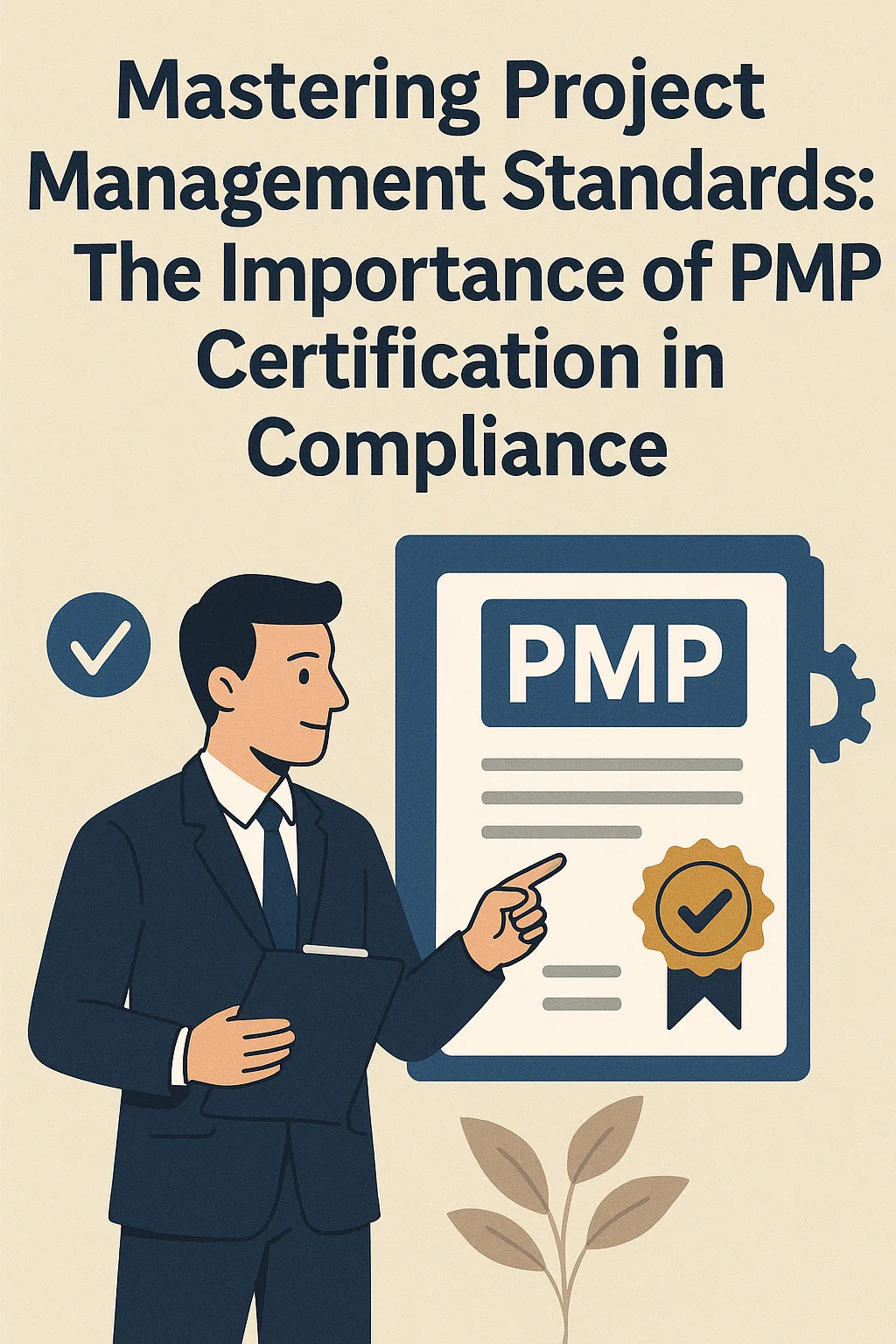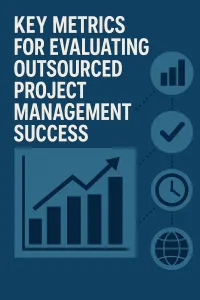Introduction to PMP Certification
Project Management Professional (PMP) certification is a globally recognized credential offered by the Project Management Institute (PMI). It signifies that an individual possesses the knowledge, skills, and experience necessary to lead and direct projects effectively. The certification is designed for project managers who are looking to enhance their professional credibility and demonstrate their commitment to the field of project management.
Definition of PMP Certification
PMP certification is a formal recognition that validates a project manager’s expertise in managing projects and leading teams. It encompasses a wide range of project management principles, methodologies, and best practices, ensuring that certified professionals are equipped to handle complex projects across various industries. The certification is based on the PMI’s Project Management Body of Knowledge (PMBOK), which outlines the standards and practices essential for successful project management.
Brief History and Evolution of the Certification
The PMP certification was first introduced in 1984 by the Project Management Institute (PMI) as a response to the growing need for standardized project management practices. Over the years, the certification has evolved to reflect changes in the industry, incorporating new methodologies and technologies. The PMBOK Guide, which serves as the foundation for the PMP exam, has undergone several revisions to include contemporary practices such as Agile and hybrid project management approaches. This evolution ensures that PMP certification remains relevant and valuable in an ever-changing project landscape.
Importance of PMP Certification in the Project Management Industry
PMP certification holds significant importance in the project management industry for several reasons:
- Credibility and Recognition: PMP certification is recognized worldwide, providing project managers with a competitive edge in the job market. It demonstrates a commitment to the profession and adherence to industry standards, which is particularly crucial in regulated industries like healthcare and finance.
- Standardization of Practices: The certification promotes a standardized approach to project management, ensuring that professionals are aligned with best practices and methodologies. This is essential in regulated industries where compliance with specific standards and regulations is mandatory.
- Enhanced Career Opportunities: Many organizations prefer or require PMP certification for project management roles, making it a valuable asset for career advancement. Certified professionals often have access to higher-level positions and increased earning potential.
- Networking Opportunities: PMP certification provides access to a global network of project management professionals, facilitating knowledge sharing and collaboration. This network can be invaluable for staying updated on industry trends and best practices.
Understanding Project Management Standards
Within regulated industries such as healthcare and finance, adherence to established standards and frameworks is crucial for ensuring compliance, efficiency, and successful project outcomes. The Project Management Professional (PMP) certification, offered by the Project Management Institute (PMI), serves as a benchmark for project managers, demonstrating their knowledge and commitment to these standards. Below, we explore the key project management standards and frameworks encompassed by PMP certification.
Overview of PMI and the PMBOK Guide
The Project Management Institute (PMI) is a globally recognized organization that sets the standards for project management practices. One of its most significant contributions is the Project Management Body of Knowledge (PMBOK) Guide, which outlines a comprehensive framework of best practices, processes, and terminologies essential for effective project management. The PMBOK Guide serves as a foundational resource for PMP certification, providing project managers with a structured approach to managing projects across various industries. It emphasizes the importance of aligning project goals with organizational strategy, ensuring that projects deliver value and meet stakeholder expectations.
Explanation of Standards such as ISO, Agile, and Six Sigma
- ISO Standards: The International Organization for Standardization (ISO) develops and publishes international standards, including those relevant to project management. ISO 21500, for instance, provides guidance on project management concepts and processes, promoting a common understanding of project management principles. Compliance with ISO standards can enhance an organization’s credibility and operational efficiency.
- Agile: Agile is a project management methodology that emphasizes flexibility, collaboration, and customer satisfaction. It is particularly beneficial in industries that require rapid adaptation to change, such as software development and healthcare. Agile methodologies, including Scrum and Kanban, focus on iterative progress and stakeholder engagement, allowing teams to respond quickly to evolving project requirements.
- Six Sigma: This data-driven approach aims to improve quality by identifying and eliminating defects in processes. Six Sigma methodologies, such as DMAIC (Define, Measure, Analyze, Improve, Control), are widely used in manufacturing and service industries to enhance efficiency and reduce variability. Integrating Six Sigma principles into project management can lead to more predictable project outcomes and higher customer satisfaction.
How PMP Certification Aligns with These Standards
PMP certification equips project managers with the knowledge and skills necessary to navigate and implement various project management standards effectively. Here’s how PMP certification aligns with these frameworks:
- Comprehensive Knowledge: The PMP curriculum covers essential project management processes and knowledge areas outlined in the PMBOK Guide, ensuring that certified professionals are well-versed in industry best practices and standards.
- Adaptability to Methodologies: PMP certification prepares project managers to apply different methodologies, including Agile and Six Sigma, depending on the project requirements. This adaptability is crucial in regulated industries where compliance and quality are paramount.
- Global Recognition: PMP certification is recognized worldwide, making it a valuable asset for project managers seeking to demonstrate their expertise in adhering to international standards, such as ISO. This recognition can enhance career opportunities and organizational credibility.
- Focus on Continuous Improvement: The principles of continuous improvement inherent in Six Sigma and Agile are integral to the PMP framework. Certified project managers are trained to foster a culture of improvement, ensuring that projects not only meet compliance standards but also drive innovation and efficiency.
The Role of PMP Certification in Regulated Industries
In today’s complex business environment, particularly within regulated industries such as healthcare and finance, adherence to industry standards and regulations is paramount. Project Management Professional (PMP) certification plays a crucial role in ensuring that project managers are equipped with the necessary skills and knowledge to navigate these regulatory landscapes effectively. Here’s an overview of how PMP certification aligns with compliance requirements in these sectors.
Overview of Regulatory Requirements in Healthcare and Finance
- Healthcare Regulations: The healthcare industry is governed by a myriad of regulations, including the Health Insurance Portability and Accountability Act (HIPAA), the Affordable Care Act (ACA), and various state-specific laws. These regulations mandate strict compliance regarding patient data privacy, quality of care, and operational efficiency. Project managers must ensure that their projects align with these regulations to avoid legal repercussions and ensure patient safety.
- Finance Regulations: Similarly, the finance sector is heavily regulated by laws such as the Sarbanes-Oxley Act (SOX), the Dodd-Frank Act, and various anti-money laundering (AML) regulations. Compliance with these regulations is critical to maintaining the integrity of financial reporting and protecting consumer interests. Project managers in finance must implement robust project management practices to ensure that all projects adhere to these stringent requirements.
How PMP Certification Helps in Maintaining Compliance with These Regulations
- Standardized Practices: PMP certification provides project managers with a standardized framework for managing projects. This framework includes best practices that are essential for compliance in regulated industries. By following these established methodologies, project managers can ensure that their projects meet regulatory requirements from initiation through to closure.
- Risk Management: One of the core components of PMP training is risk management. In regulated industries, understanding and mitigating risks associated with compliance is crucial. PMP-certified project managers are trained to identify potential compliance risks early in the project lifecycle and develop strategies to address them, thereby minimizing the likelihood of regulatory breaches.
- Stakeholder Communication: Effective communication with stakeholders is vital in regulated industries. PMP certification emphasizes the importance of stakeholder engagement and communication plans, which are essential for ensuring that all parties are informed about compliance requirements and project progress. This transparency helps in building trust and accountability.
Benefits of PMP Certification for Project Managers
Within regulated industries such as healthcare and finance, obtaining a Project Management Professional (PMP) certification can significantly enhance a project manager’s career trajectory. Here are the key benefits of pursuing this esteemed certification:
- Enhanced Credibility and Recognition in the Industry: The PMP certification is globally recognized and respected, serving as a testament to a project manager’s expertise and commitment to the profession. It demonstrates that the individual has met rigorous standards set by the Project Management Institute (PMI) and possesses a comprehensive understanding of project management principles. This recognition can lead to greater trust from stakeholders, clients, and employers, which is particularly crucial in regulated industries where compliance and accountability are paramount.
- Improved Skills and Knowledge in Project Management Practices: The process of preparing for the PMP exam equips project managers with advanced skills and knowledge that are essential for effective project execution. The certification covers a wide range of topics, including risk management, stakeholder engagement, and quality assurance, which are critical in ensuring that projects meet regulatory requirements. By mastering these areas, project managers can implement best practices that enhance project outcomes and ensure compliance with industry standards.
- Increased Job Opportunities and Potential for Career Advancement: Holding a PMP certification can significantly broaden a project manager’s job prospects. Many organizations, especially in regulated sectors, prefer or even require PMP certification for project management roles. This certification not only opens doors to new job opportunities but also positions certified professionals for higher-level roles and responsibilities. As industries continue to evolve and the demand for skilled project managers grows, having a PMP certification can be a key differentiator in a competitive job market.
PMP Certification and Risk Management
The ability to effectively manage risks is paramount. The Project Management Professional (PMP) certification, recognized globally, plays a crucial role in equipping project managers with the necessary skills and knowledge to navigate the complexities of risk management in compliance-heavy environments. Here’s how PMP certification aligns with industry standards and enhances risk management capabilities:
Role of Risk Management in Project Success
- Foundation of Project Success: Risk management is integral to the success of any project. It involves identifying potential risks that could impact project objectives, analyzing their implications, and implementing strategies to mitigate them. In regulated industries, where compliance with laws and regulations is critical, effective risk management can mean the difference between project success and failure.
- Proactive Approach: By adopting a proactive approach to risk management, project managers can anticipate challenges and develop contingency plans, ensuring that projects remain on track and compliant with industry standards.
PMP Certification’s Focus on Risk Identification, Analysis, and Mitigation
- Comprehensive Risk Management Framework: The PMP certification emphasizes a structured approach to risk management, as outlined in the PMBOK® Guide (Project Management Body of Knowledge). This framework includes processes for risk identification, qualitative and quantitative risk analysis, and risk response planning.
- Skill Development: Through the PMP certification process, project managers learn to utilize various tools and techniques for effective risk management. This includes risk assessment matrices, decision trees, and Monte Carlo simulations, which are essential for analyzing potential risks and their impacts on project timelines and budgets.
Examples of Risk Management Strategies Validated by PMP Standards
- Risk Mitigation Plans: PMP-certified project managers are trained to develop risk mitigation plans that outline specific actions to reduce the likelihood or impact of identified risks. For instance, in a healthcare project, a risk mitigation strategy might involve implementing additional training for staff to comply with new regulations, thereby minimizing the risk of non-compliance.
- Continuous Monitoring and Review: The PMP framework encourages ongoing risk monitoring and review throughout the project lifecycle. This ensures that new risks are identified and addressed promptly, maintaining compliance and project integrity. For example, in finance, regular audits and compliance checks can be integrated into the project management process to ensure adherence to regulatory requirements.
Aligning PMP Certification with Organizational Goals
In today’s complex and regulated environments, particularly in industries such as healthcare and finance, aligning project management practices with organizational compliance goals is crucial. The Project Management Professional (PMP) certification serves as a vital tool in achieving this alignment. Here’s how PMP certification can enhance project management practices to meet compliance requirements and support organizational objectives.
Importance of Aligning Projects with Business Objectives
- Strategic Alignment: PMP certification emphasizes the importance of aligning projects with the strategic goals of the organization. Certified project managers are trained to understand how their projects contribute to broader business objectives, ensuring that every initiative supports the organization’s mission and vision. This alignment is particularly critical in regulated industries where compliance with laws and standards is paramount.
- Stakeholder Engagement: A key aspect of PMP training is stakeholder management. Certified project managers are equipped to identify and engage stakeholders effectively, ensuring that their needs and expectations are met. This engagement is essential for maintaining compliance and achieving project success, as it fosters collaboration and transparency among all parties involved.
Strategies for Integrating PMP Practices Within an Organization
- Standardized Processes: Implementing standardized project management processes based on PMP methodologies can help organizations maintain consistency and compliance across projects. By adopting best practices outlined in the PMBOK (Project Management Body of Knowledge), organizations can ensure that all projects adhere to industry standards and regulatory requirements.
- Training and Development: Organizations should invest in training their project managers in PMP principles and practices. This not only enhances the skills of the project management team but also fosters a culture of compliance and accountability. Regular training sessions can help keep the team updated on the latest industry standards and regulatory changes.
- Utilizing Tools and Techniques: PMP certification provides project managers with a toolkit of techniques for planning, executing, and monitoring projects. By leveraging these tools, organizations can improve their project management processes, making them more efficient and compliant with industry regulations.
Impact of Successful Alignment on Compliance and Project Outcomes
- Enhanced Compliance: When project management practices are aligned with organizational goals, compliance becomes a natural outcome. PMP-certified project managers are trained to identify compliance risks early in the project lifecycle, allowing for proactive measures to be taken. This foresight can significantly reduce the likelihood of compliance breaches and associated penalties.
- Improved Project Outcomes: Successful alignment of projects with business objectives leads to better project outcomes. Projects that are strategically aligned are more likely to be completed on time, within budget, and to the satisfaction of stakeholders. This success not only enhances the reputation of the project management team but also contributes to the overall success of the organization.
- Long-term Sustainability: Organizations that prioritize alignment between project management practices and compliance goals are better positioned for long-term success. By fostering a culture of compliance and accountability, these organizations can navigate regulatory challenges more effectively, ensuring sustainable growth and stability.
Future Trends in Project Management and PMP Certification
As the landscape of project management continues to evolve, particularly in regulated industries such as healthcare and finance, the relevance of Project Management Professional (PMP) certification is increasingly influenced by emerging trends. Understanding these trends is crucial for project managers aiming to maintain compliance and enhance their skills. Here are some key points to consider:
Technological Advancements in Project Management Tools
- Integration of AI and Automation: The rise of artificial intelligence (AI) and automation tools is transforming project management practices. These technologies streamline processes, enhance decision-making, and improve efficiency. Project managers with PMP certification can leverage these tools effectively, ensuring that their projects align with industry standards and regulations.
- Data Analytics: The use of data analytics in project management allows for better forecasting, risk management, and performance tracking. PMP-certified professionals are equipped to utilize these analytics to make informed decisions, thereby enhancing project outcomes and compliance with regulatory requirements.
The Rise of Agile and Hybrid Project Management Methodologies
- Shift Towards Agile Practices: Many organizations are adopting Agile methodologies to increase flexibility and responsiveness to change. PMP certification now incorporates Agile principles, enabling certified project managers to implement these methodologies effectively while still adhering to traditional project management standards.
- Hybrid Approaches: The blending of Agile and traditional project management practices is becoming more common. PMP certification prepares project managers to navigate this hybrid landscape, ensuring that they can adapt to various project environments while maintaining compliance with industry regulations.
Predictions for the Evolution of PMP Certification in Response to Industry Changes
- Increased Focus on Soft Skills: As project management becomes more collaborative and team-oriented, there is a growing emphasis on soft skills such as communication, leadership, and emotional intelligence. Future iterations of PMP certification may place greater importance on these competencies, reflecting the changing demands of project management roles.
- Continuous Learning and Adaptation: The fast-paced nature of technological advancements and evolving methodologies necessitates ongoing education. PMP certification may evolve to include more frequent updates and training modules, ensuring that project managers remain current with industry best practices and compliance standards.
Conclusion
In today’s complex and highly regulated environments, the importance of PMP (Project Management Professional) certification cannot be overstated, especially for project managers operating in industries such as healthcare and finance. This certification not only signifies a commitment to the profession but also demonstrates a comprehensive understanding of project management standards and best practices that are crucial for compliance with industry regulations.
- Recap of the Importance of PMP Certification in Regulated Industries: PMP certification equips project managers with the knowledge and skills necessary to navigate the intricate landscape of regulatory requirements. It provides a framework for managing projects effectively while ensuring adherence to compliance standards. In sectors like healthcare, where patient safety and data privacy are paramount, and in finance, where regulatory compliance is critical, having a PMP-certified project manager can significantly enhance the likelihood of project success and mitigate risks associated with non-compliance.
- Final Thoughts on How PMP Certification Enhances Project Management Standards: The PMP certification is recognized globally and is synonymous with excellence in project management. It fosters a common language and understanding among project managers, which is essential for collaboration and communication in regulated industries. By adhering to the standards set forth by the Project Management Institute (PMI), certified professionals are better equipped to implement best practices, leading to improved project outcomes and organizational efficiency.
In conclusion, the value of PMP certification extends beyond personal achievement; it is a vital asset for project managers aiming to excel in regulated industries. By embracing this certification, project managers can significantly contribute to their organizations’ success while upholding the highest standards of project management.
Find out more about Shaun Stoltz https://www.shaunstoltz.com/about/.
This post was written by an AI and reviewed/edited by a human.



